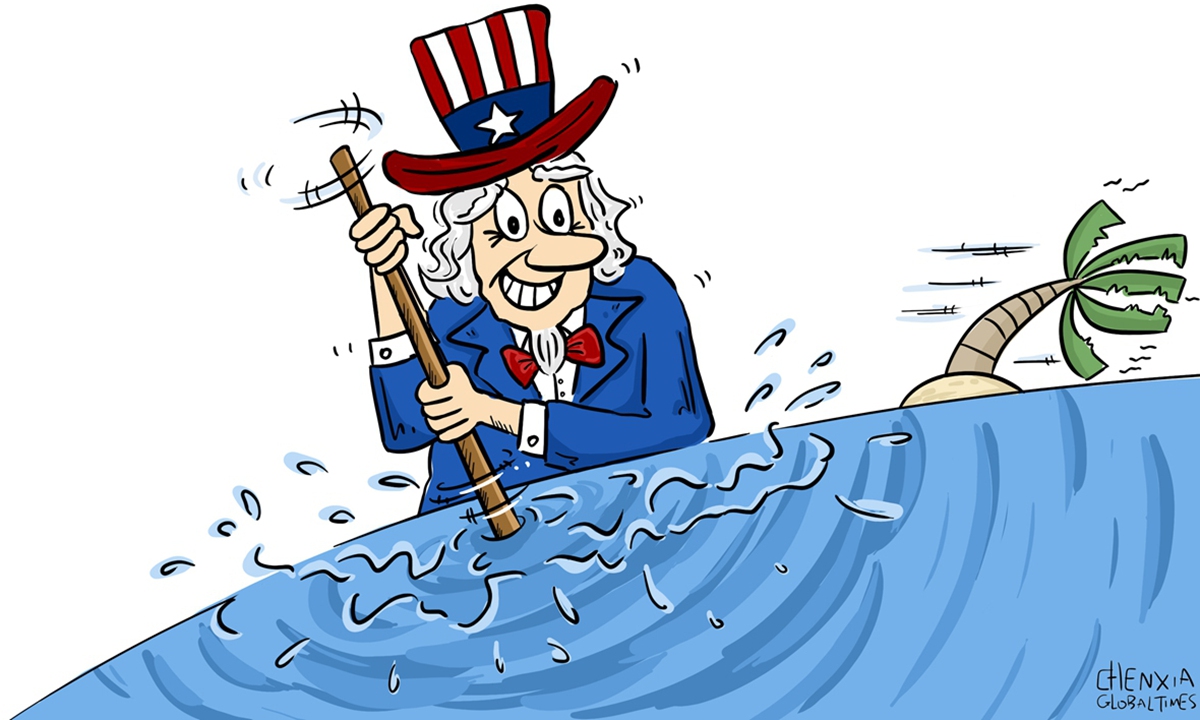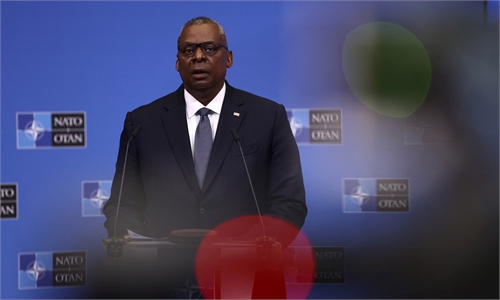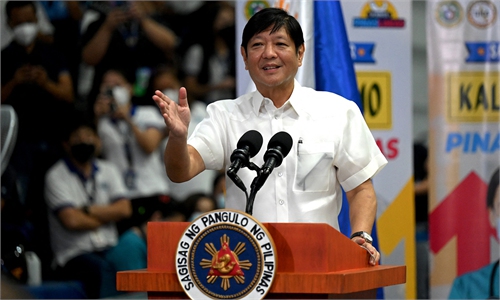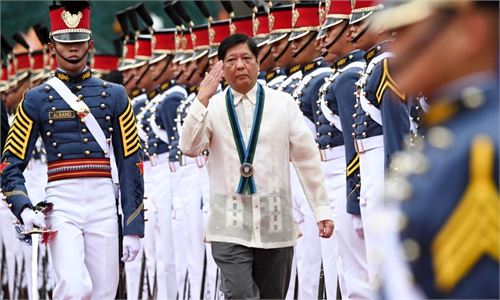
Illustration: Chen Xia/GT
Washington's attempt to lure Manila into its anti-China orbit has become more evident recently. It is now using every opportunity to sow discord between China and the Philippines in a bid to rope in Manila to its side to jointly contain China.Referring to the latest laser incident, US State Department spokesperson Ned Price said on Monday "The United States stands with our Philippine allies." Washington sees the laser incident as a fresh chance to achieve the goal. The US' hype over the laser incident as well as the country's attempt to groundlessly label the laser incident as "an armed attack" is evidently provocative.
Chinese Foreign Ministry spokesperson has denied the accusation of the Philippine side, saying a Chinese coast guard ship did not direct laser light at the crew on a Philippine coast guard ship, which intruded into waters off the Ren'ai Reef without China's permission on February 6 and a Chinese coast guard ship had to take measures in accordance with law and warned them away. The instrument used won't cause damage to personnel or equipment.
The Enhanced Defense Cooperation Agreement (EDCA), which was signed between the US and the Philippines in April 2014, has an initial validity of 10 years, and will automatically be in force until a one-year notice is given by either party to terminate the agreement. And the first chance comes up in April this year. In this context, Washington's frequent exchanges with Manila, and expressing the willingness to support the Philippines against China can be regarded as the US' bid to pressure Manila to renew the agreement.
In the light of current situation, the possibility of renewal is high. Given Philippine President Ferdinand Marcos Jr has allowed US troops to access four more military bases in his country, he has desire and interest in beefing up military cooperation with Washington. Its renewal will pose a severe security threat to China. Although officials declined to name the locations of the additional four military bases, according to sources, at least one of them will be situated in the Luzon Island, a place close to the Taiwan island. That is to say that after the EDCA extension, the Philippines' cooperation with US in the latter's military bases located in the Philippines will be intensified, posing a security challenge to the Taiwan Straits and as well as the South China Sea.
It can be argued that the US is the biggest security peril and unstable trigger in the South China Sea and even the entire Asia-Pacific region. Washington has racked its brain to muddy the waters of the South China Sea so that it can fish out of the troubled waters and achieve the goal of containing China.
The US sees the Philippines as a critical strategic piece to contain China in the Asia-Pacific. Among the ASEAN members, the Philippines, a traditional ally of the US, has a unique status. By driving a wedge between China and the Philippines, Washington wants the Philippines to take sides with it, helping the US achieve the goal of containing China on the South China Sea issue as well as the Taiwan question.
As for the Philippines, Marcos Jr' recent moves are a bit disappointing. Even though his foreign policy can still fall into the framework of balanced diplomacy, the tendency of leaning toward the US has become a bit evident. Apart from allowing the US to access four more military bases, his visit to Japan can also exemplify, during which the Philippines said it is considering a trilateral defense pact with the US and Japan.
But it should be clear to Manila that Washington is unreliable. It has always been evident that the US puts its own interests over anything else in its foreign policy. For example, although Biden said he attaches great importance to the relationship with Seoul, his Inflation Reduction Act still suppresses South Korean industries. Thus, the Philippines should not expect that the US will have its back. Currently, Washington's courtship toward the Philippines comes out of the latter's value in helping containing China. And once Manila is in trouble or its interests go against the US', Washington will not stand up for it, or even stab it in the back.
In the great power competition, the US' primary strategy is to use its alliances, which is prominent under Democratic administrations, especially the Biden administration. The US uses Ukraine as a pawn against Russia, while roping in allies, such as South Korea and the Philippines, to contain China. But the effect of the US' small clique, as well as its bilateral and trilateral coordination attempts in the Asia-Pacific, will be highly limited.
The author is research fellow and deputy director at the Institute of International Relations of the Shanghai Academy of Social Sciences. opinion@globaltimes.com.cn



